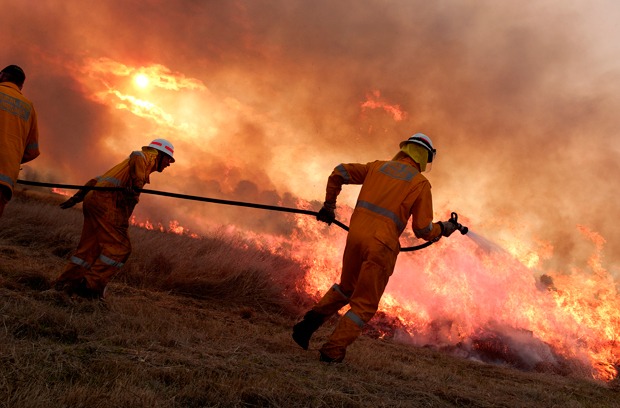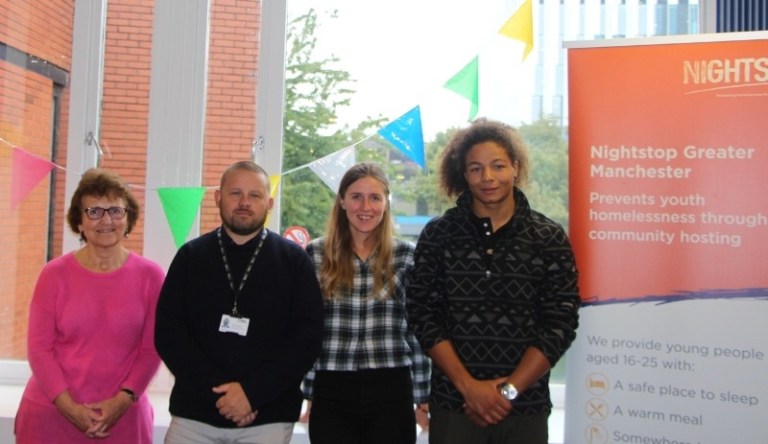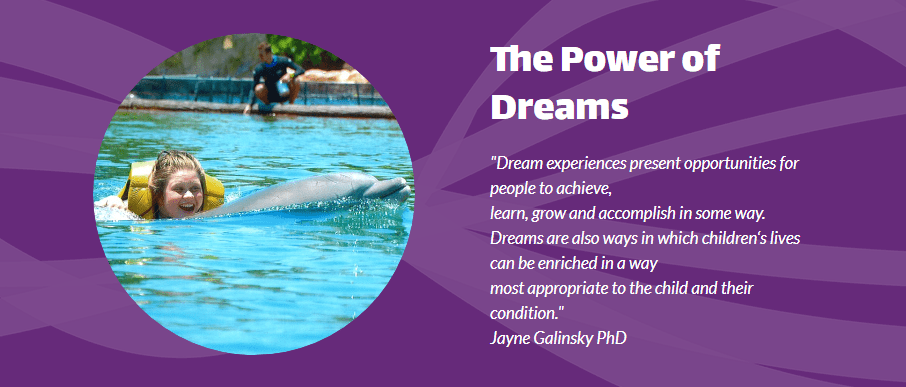Before I arrived at university, I had no idea just how much effort it takes to keep a university team running smoothly. From taking care of players’ wellbeing to ensuring the club is financially stable. It’s clear to see how much effort these students put into the clubs they’re a part of.
To keep playing their favourite sports, a select group of students from each sports team have to step up and take on a vital senior role within the club. I’d like to take a look at one club in particular.
The Manchester Metropolitan University Women’s Football team have been my favourite group of people since I started university. Now I’m on placement, I thought it’d be great to bring attention to the work they do day in, day out.
From managing club funds to organising social events, every member of a sports team’s committee is important.
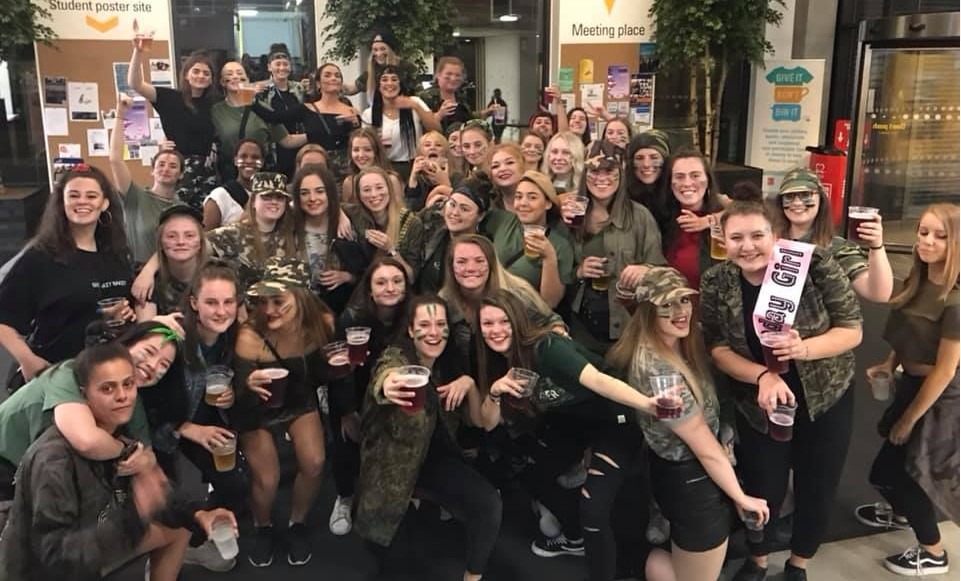
One of our many nights out… Guess the theme? 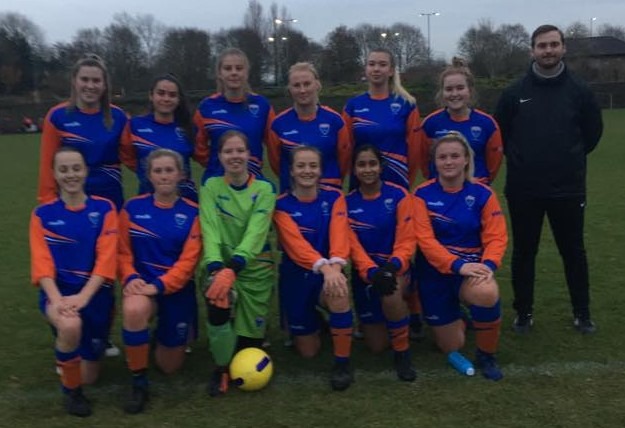
The MMUWFC 1st Team
But first… What does it mean to take on one of these roles?
The different roles that students on the team can volunteer for include: – Social Secretary: ensure that the club has plenty of social activities that appeal to all members and allow everyone to get to know each other in a welcoming and friendly environment.
– Treasurer: oversees financial aspects of the club. They will work with other members of the committee to plan which events and activities the club can afford to carry out.
– Publicity Secretary: ensure that the club has a strong social media presence and content to keep current members engaged and attract new members.
– Vice Chair/Chair: the chair is responsible for overseeing the committee and club activity/direction. They provide support and guidance to other committee and club members. The vice chair will assist them in all matters (see our interview with Charley below for more).
These roles may vary between teams/universities but are vital to keep the clubs running smoothly. Taking on one of these roles requires some work. Despite this, it can make for a great addition to any CV and the skills you learn along the way are invaluable!
I spoke to Charley Parkin, the Vice Chair of MMU Women’s Football and Captain of the 1st Team…
What kind of work do you do for the MMU Women’s Football Team?
“I mainly just oversee things on the admin side and help Crystal (The Chair) with anything she needs. Basically making sure things go smoothly. As first team captain I have to organise teams, transport to fixtures, etc. and make sure everyone is having a good time.”
Why did you want to volunteer to be on the committee?
“I wanted to volunteer to be on the committee because I did it last year as Social Sec and really enjoyed it. Plus, having been at uni three years I feel like I am in a good position to help and advise first years with any issues they have and almost act as a role model.”
Do you enjoy your role?
“I enjoy being involved with decisions made about the club and the fact we can influence things for the better and make not just people’s women’s football experience but university experience better as a whole.”
So how do I get involved?
MMU Women’s Football isn’t the only team out there that relies on volunteers! Chances are every sports club at any given university does. This may seem like hard work for anyone who takes up one of these senior roles, but the rewards are great. You’ll have leadership experience and a range of skills that you can’t find anywhere else – who wouldn’t want that on their CV?!
There are a few different ways you can get involved:
- Check your university’s volunteering page,
- Get in contact with your student union,
- Just go and talk to the current chair of the club you want to volunteer for!
Tip: It’s usually best to go for these roles after the current sporting season has finished and before the next one starts.
You can find TeamKinetic on social media: Twitter, Facebook, LinkedIn, and YouTube. We share and create content suitable for anyone interested in volunteering!
Check out our other blogs on student volunteering here and here.








